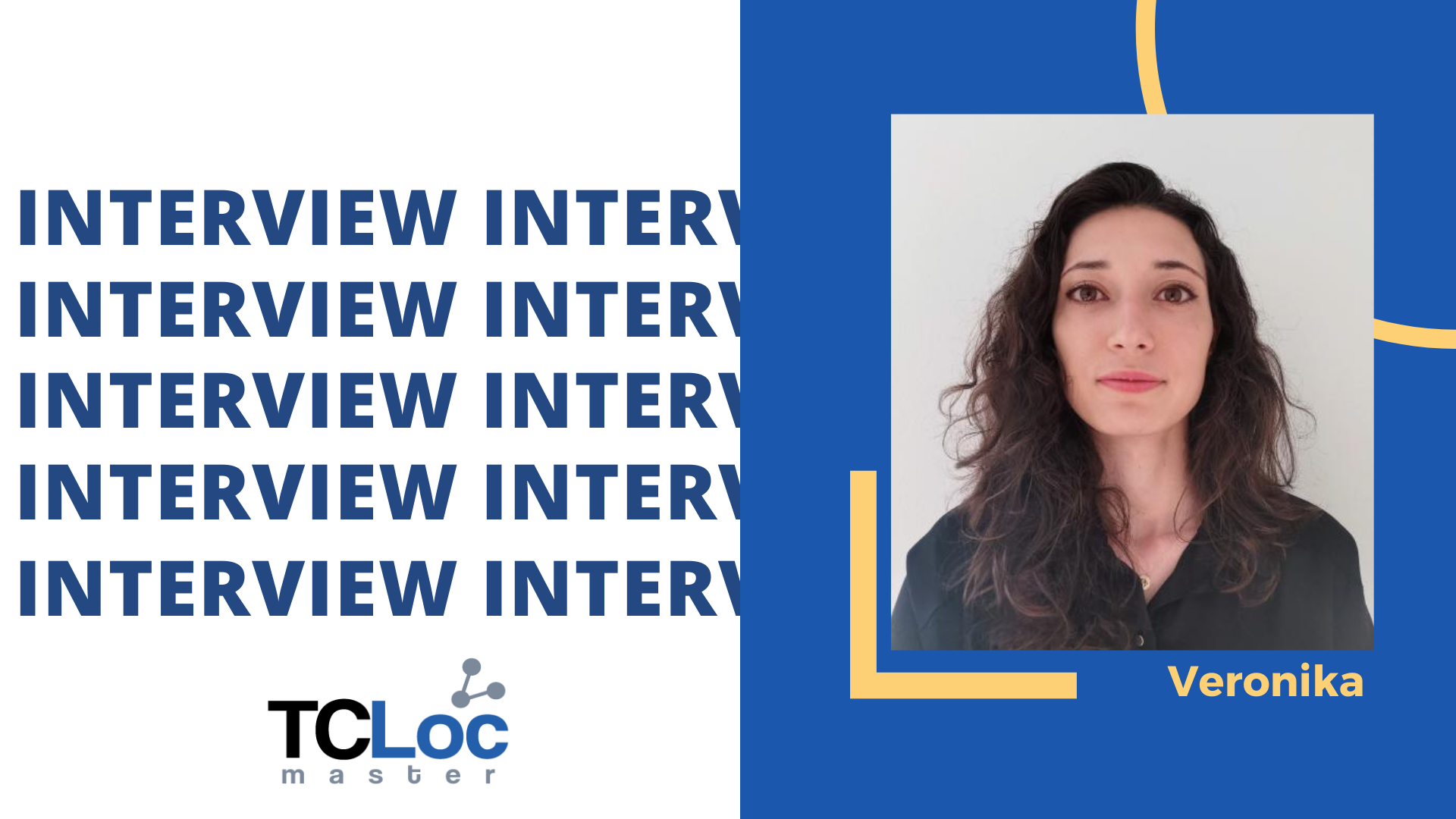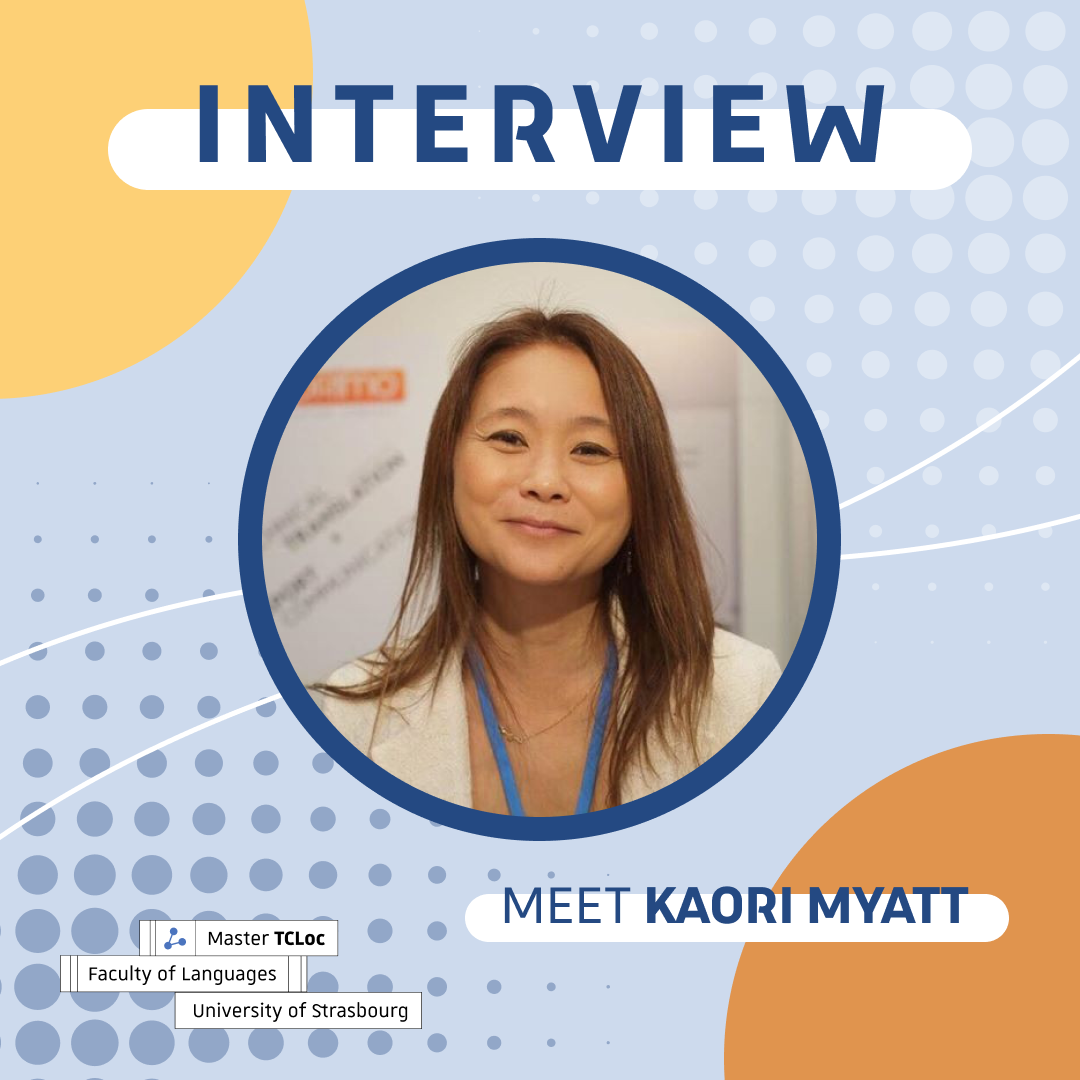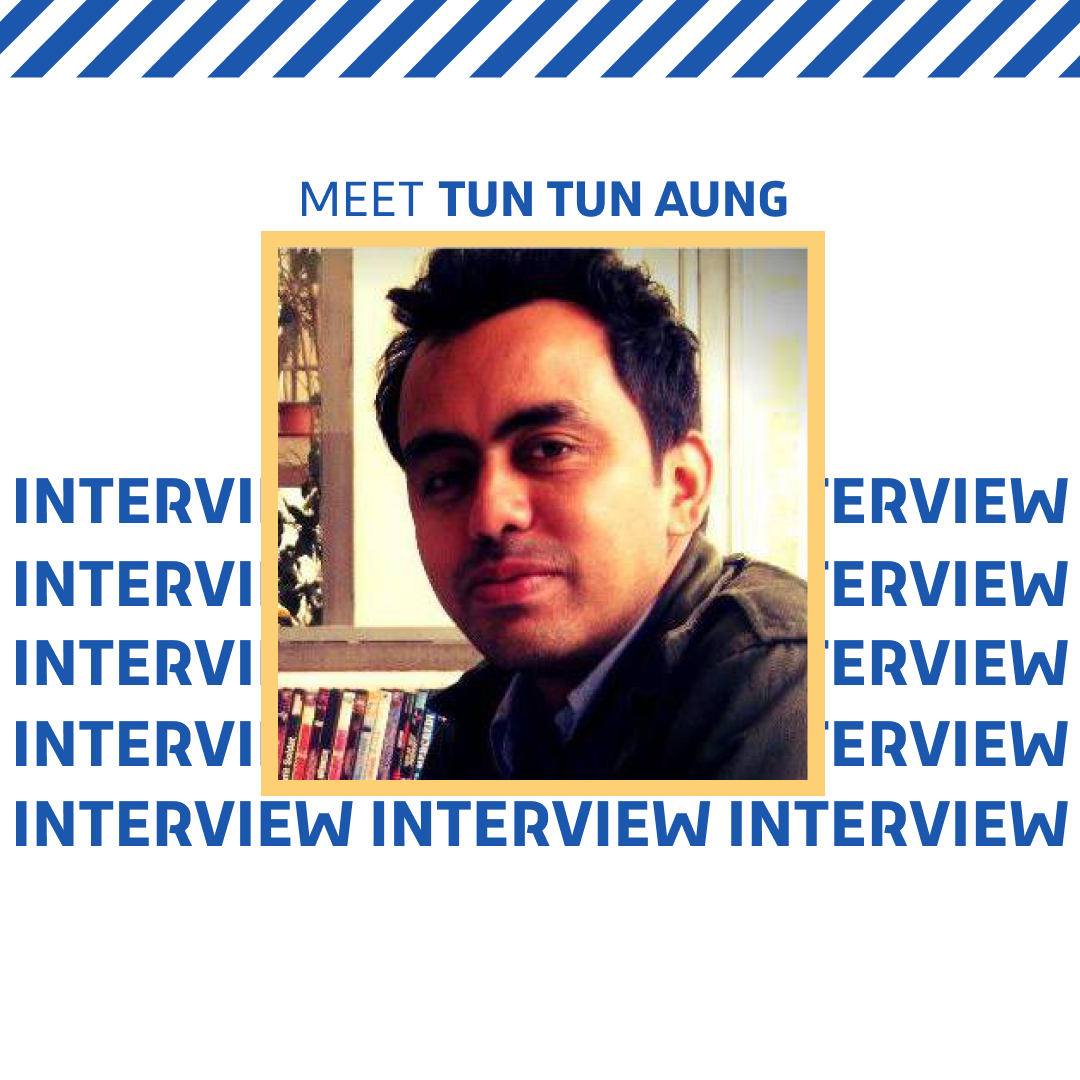Veronika is from Bulgaria and previously worked as an English teacher in China and Italy. Even though she’d never had the chance to study or work in the field of localization before, she took a leap and enrolled in the TCLoc master’s program to broaden her knowledge.
Let’s find out a bit more about Veronika’s background before TCLoc
Hello Veronika, thank you for taking the time to answer our questions. Could you introduce yourself and tell us why you joined the TCLoc Master’s program?
-– I realized that there is more to translation, so I started focusing on localization and found TCLoc
“Hello, my name is Veronika and I come from Bulgaria. I’ve always enjoyed working or studying in an international environment, so I took every opportunity to travel and experience life abroad. I’ve spent the past few years working as an English teacher in China and Italy. Working in China was a fun and exciting adventure, as I had to adapt to a completely different lifestyle, education system and mentality. Viewing the world from my students’ perspective raised questions and inspired curiosity. I began looking for a master’s in translation, but I eventually realized that I am interested in more than pure translation. I then started focusing on localization and found TCLoc. The course description sounded very interesting, so despite my initial hesitation due to my lack of experience, I decided to go for it and give it a try.”
It’s nice that you decided to enroll in this program despite not having studied this field before. It’s always good to discover new things. Was it easy for you to go back to university to study a new subject?
“Well, as I had no experience in technical communication or localization, I expected that the program would be demanding and time-consuming. Even during my application interview, the program director warned me that it would be intense and that I should plan accordingly.”
Time to ask her how she felt during TCLoc
Yes, it can be challenging to balance university life with work/family life. But you chose to do the program over two years, didn’t you? Would you recommend that?
– My advice is not to rush it: you can take the two-year option and choose your own pace
“Exactly! One great thing about this program is that you can choose your own pace and do it in one or two years. If you are inexperienced like me, my advice is not to rush it. Unlike many other master’s programs, TCLoc includes a range of practical courses, like Web Tools and Languages, Visual Communication, and Mobile App Localization, to name just a few. This means that you need to dive in, complete the extra exercises and get lots of practice in order to get a good understanding of the subject. If you have a full-time job and children, you might find it challenging to complete the program within a year. In this kind of situation, yes, I would suggest taking the two-year option.”
Thank you for the advice, I’m sure a lot of students will be happy to know that. Talking about students, how was it to meet people from all over the world? How did the interactions with other students, the teachers and people involved in the master’s go?
“It has been a very pleasant experience because both the instructors and students are multicultural. Communicating with the instructors is easy. They are professional, yet very friendly. The same goes for the students. After the introduction week, we created a WhatsApp group where we could help each other, share knowledge and experience or just vent.”
It’s good you can use social networks in that way, since this master’s is a distance learning program. Did you ever find it hard to connect with people?
-– At first, I was afraid to never see my classmates’ faces but soon, I realized that you don’t feel alone in this program
“As it was my first time taking an online program, I was initially a bit concerned about communication. I was worried that it might not be as efficient and that I might never see my coursemates’ faces. In reality, this hasn’t stopped me from getting to know new people and building relationships. Apart from the live sessions, you can reach instructors or students directly regarding any concerns or advice. You never really feel alone in the program, you get a lot of support from everyone.”
Time for Veronika to give an overview of her TCLoc experience
It’s important to stay connected, especially in these times. Now, could you tell us what benefits TCLoc has brought you? Is a career change on the cards?
— The courses are strongly related to each other and give you all the basics, but you will also need self-motivation, self-discipline and to keep on learning
“ I have only just graduated, so it’s still too early to tell. A career change is not an easy challenge to overcome but I hope an opportunity will arise soon. I’ve learned a lot, though. The program offers courses that are strongly related to each other, so it gives you a clear perspective of the big picture: from learning how to build a simple website, to building a successful content strategy; from optimizing UX and SEO to creating graphics. All the information in the courses is current and allows you to pursue a career in some of the fields mentioned. It gives you the basics, but you will have to build on this and continue working even after the master’s is finished. Your success and opportunities will heavily rely on your self-motivation, self-discipline and continuous learning.”
Of course. Do you believe this program can benefit someone that has already worked in these fields (translation/localization)?
“For students who are already working in technical communication or localization, it can be an eye-opener and a refreshing experience, as you get to update your current skills and knowledge, work with different tools and learn about the latest content strategies and technical documentation requirements and policies.”
You will soon reach the end of this master’s degree. What plans do you have for the future?
— I learned so much from my teammates: I’d like to use what I’ve learned in projects that are just as rewarding
“As the end of my studies approaches, I feel like the real challenge is about to begin. Once I am finished with my thesis and the rest of my exams, I am going to continue building my portfolio and to self-study. Personally, I enjoyed the courses in Mobile App Localization and Web Tools and Languages so I am going to focus on these subjects and continue my job hunting. I am using every opportunity to learn from my fellow students. During our Project Management class, for example, I had the chance to manage a project and work together with other TCLoc students on localizing a little web app game. It was a fun and rewarding experience for me as I learned so much from my teammates. I hope I can continue working on similar projects and put all the knowledge I’ve gained from the program into practice.”
Let us all wish you the best then! Sadly, our interview comes to an end but before that: do you have any advice for future students? For example, tips or maybe software and tools that helped you?
— Build your own schedule and don’t forget to treat yourself!
“Well, I used the usual tools, like Google Calendar to remind me of upcoming exams, assignments or live sessions. The thing is that the university does this for you already. You get all the files containing the course program, including timetables, holidays, etc. As for time management, just try to build your own schedule and estimate the maximum hours you can dedicate per day for studying. Don’t forget to treat yourself, once your goal is achieved!”
You are totally right: after doing your best, time to rest! And what about going back to school and the habit of learning? Any other tips? It can be challenging when you study from home.
— I would lose focus every 30 minutes and stay close to the fridge for frequent snacks but it all worked out after just one week
“Going back to studying can be a little rough at the beginning. It’s different for everyone. My personal experience was a bit funny as I would lose focus every 30 minutes and stay within close proximity to the fridge for frequent snacks and shots of energy, but it all passed after a week. It’s a matter of training. My advice is to just take it slowly, expand the study hours bit by bit till they turn into a habit.”
Thank you very much Veronika, it was nice to meet you! We hope that everything turns out well with your thesis and future projects!
Interview – Céline Sellier | Editing – Lisa Krill



